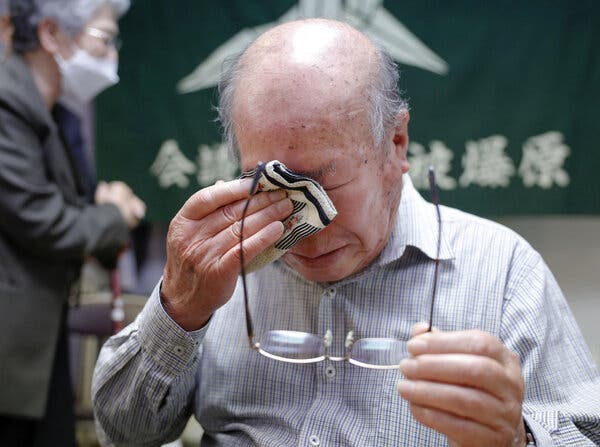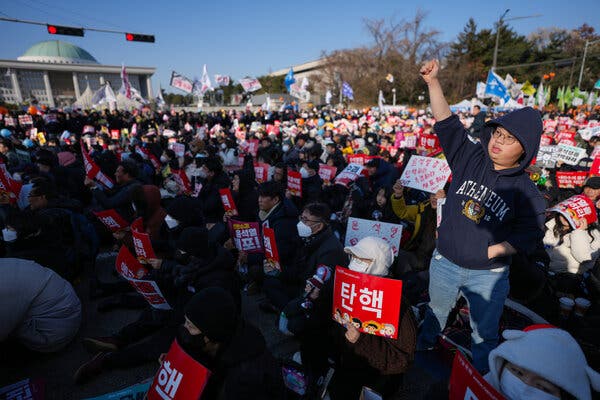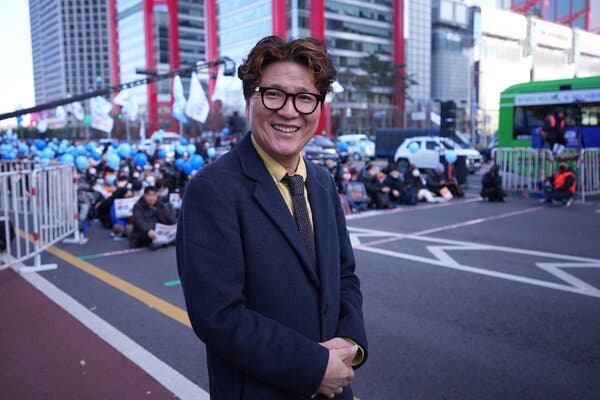Many survivors of the Hiroshima and Nagasaki attacks have dedicated their lives to campaigning for nuclear disarmament. Their mission has grown more urgent as the number of living witnesses to the bombings has dwindled.

Toshiyuki Mimaki was just 3 when he saw the flash from the nuclear weapon that wiped out some 100,000 lives in Hiroshima, Japan, in 1945. Nearly eight decades later, as a leader of Nihon Hidankyo, a group of fellow atomic bomb survivors that received the Nobel Peace Prize on Friday, he renewed his plea to abolish nuclear weapons.
“We don’t have much life left anymore,” said Mr. Mimaki, who is now 82. “I am not sure I will be alive next year.”
Other survivors of the Hiroshima and Nagasaki attacks by the United States reacted to the news of the Peace Prize with a mix of surprise, bittersweet joy and renewed determination in their mission, which has grown ever more urgent as the number of living witnesses to the bombings has dwindled.
Many have dedicated their lives to sharing their experiences and to campaigning for nuclear disarmament.
As the announcement that Nihon Hidankyo had received the Nobel was broadcast in the rooms of Hiroshima’s City Hall on Friday, decades of campaigning culminated in tears for the survivors and their descendants, who are known as “hibakusha,” or “bomb-affected people,” in Japan.
“Please abolish nuclear weapons while we are alive,” Mr. Mimaki told reporters at a news conference in which he wept openly. “That is the wish of 114,000 hibakusha.”
The words hibakusha and nuclear weapons were repeated several times in the Peace Prize announcement that was broadcast worldwide from the Norwegian Nobel Institute in Oslo, bringing the survivors’ concerns to a global audience as the bombings’ 80th anniversary approaches.
“There is no greater encouragement for us atomic bomb survivors,” Takeshi Yamakawa, 88, told NHK, Japan’s public broadcaster.
The award also prompted survivors to voice their concerns that global tensions, including the wars in Ukraine and the Gaza Strip, could escalate into nuclear war. For some survivors of the bombs, the prize resurfaced the horrific pain that followed the American nuclear attacks on Japan.
“Starting with the inhumane acts of Hiroshima and Nagasaki, we were oppressed by the United States and abandoned by the Japanese government for a long time,” said Sueichi Kido, the secretary general of Nihon Hidankyo, who was exposed to the bomb in Nagasaki when he was 5.
The recognition also resonated with younger people. Yuuka Ohara, 17, a third-generation hibakusha from Nagasaki, said she was happy that more people would learn about the mission to abolish nuclear weapons.
“It’s our generation’s mission to succeed them,” she said.
John Yoon is a Times reporter based in Seoul who covers breaking and trending news. More about John Yoon
Hisako Ueno is a reporter and researcher based in Tokyo, writing on Japanese politics, business, labor, gender and culture. More about Hisako Ueno
Kiuko Notoya is a Tokyo-based reporter and researcher, covering news and features from Japan. More about Kiuko Notoya



